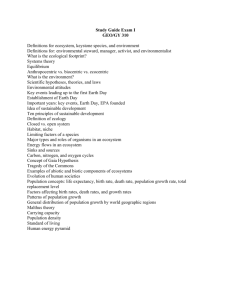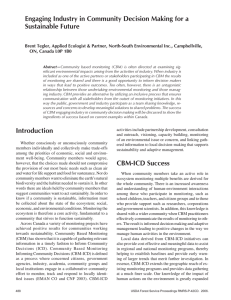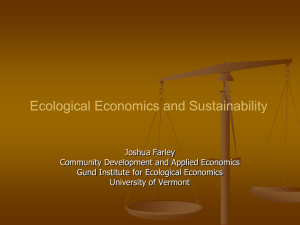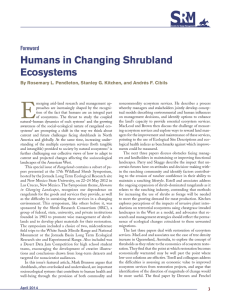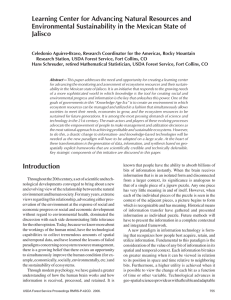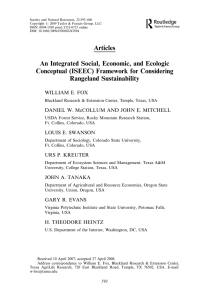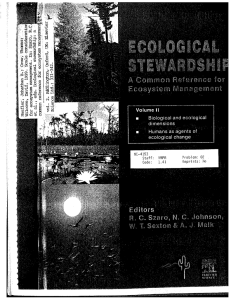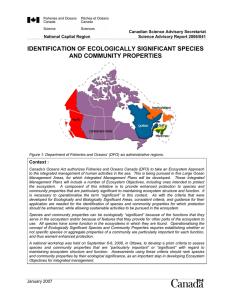Document 11863644
advertisement
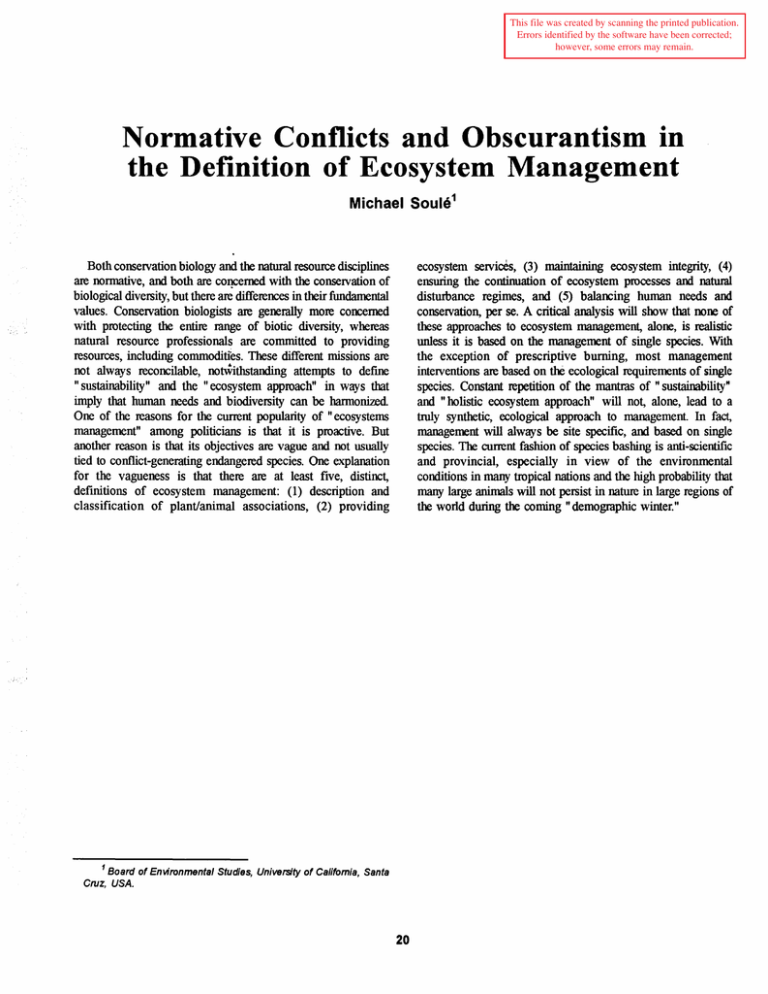
This file was created by scanning the printed publication. Errors identified by the software have been corrected; however, some errors may remain. Michael Soule1 Both conselVation biology and the natural resource disciplines are normative, and both are cOl!Cerned with the conselVation of biological diversity, but there are differences in their fundamental values. ConselVation biologists are generally more concerned with protecting the entire range of biotic diversity, whereas natural resource professionals are committed to providing resources, including commodities. These different missions are not always reconcilable, notWithstanding attempts to define "sustainability" and the "ecosystem approach" in ways that imply that human needs and biodiversity can be hannonized One of the reasons for the current popularity of "ecosystems management" among politicians is that it is proactive. But another reason is that its objectives are vague and not usually tied to conflict-generating endangered species. One explanation for the vagueness is that there are at least five, distinct, defmitions of ecosystem management: (l) description and classification of plant/animal associations, (2) providing ecosystem selVices, (3) maintaining ecosystem integrity, (4) ensuring the continuation of ecosystem processes and natural disturbance regimes, and (5) balancing human needs and conselVation, per se. A critical analysis will show that none of these approaches to ecosystem management, alone, is realistic unless it is based on the management of single species. With the exception of prescriptive burning, most management intelVentions are based on the ecological requirements of single species. Constant repetition of the mantras of "sustainability" and "holistic ecosystem approach" will not, alone, lead to a truly synthetic, ecological approach to management. In fact, management will always be site specific, and based on single species. The current fashion of species bashing is anti-scientific and provincial, especially in view of the environmental conditions in many tropical nations and the high probability that many large animals will not persist in nature in large regions of the world during the coming "demographic winter." 1 Board of Environmental Studies, University of Califomia, Santa Cruz, USA. 20
